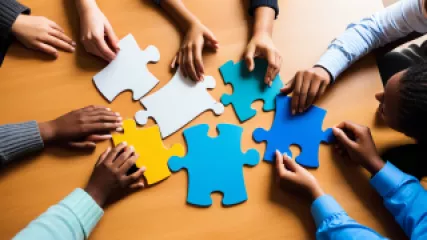Effective Family Conflict Management Therapy
Family conflict is an inevitable part of life. In every family, disagreements and disputes are bound to arise due to differences in opinions, values, and expectations. However, it is how we navigate and manage these conflicts that can make a significant impact on the overall well-being and harmony within the family unit.
The Importance of Effective Family Conflict Management
Unresolved conflicts can lead to long-lasting negative effects on family relationships. They can create tension, resentment, and even estrangement among family members. This not only affects the individuals involved but also has a ripple effect on the entire family dynamic.
Effective family conflict management is crucial for maintaining healthy relationships and fostering a supportive environment where everyone feels heard, understood, and respected. It involves learning how to communicate effectively, resolve conflicts in a constructive manner, and build stronger connections within the family.
Understanding Family Conflict
Before delving into the strategies and techniques of effective conflict management, it is important to understand the nature of family conflict. Family conflicts can arise from various sources, including:
- Differences in values and beliefs
- Parenting styles and discipline methods
- Financial issues
- Sibling rivalry
- Roles and responsibilities within the family
- Life transitions and changes
Each family is unique, and the specific triggers for conflicts may vary. However, the underlying emotions and dynamics of family conflict often remain universal.
The Role of Therapy in Family Conflict Management
Therapy can play a crucial role in helping families navigate and resolve conflicts in a healthy and productive manner. Conflict management therapy provides a safe space for family members to express their thoughts, feelings, and concerns while working towards finding mutually agreeable solutions.
There are several approaches and techniques used in family conflict management therapy, including:
- Family Systems Therapy: This approach focuses on understanding the interconnectedness of family members and how their actions and behaviors impact the entire system. It helps identify patterns, roles, and dynamics within the family that contribute to conflicts.
- Communication Skills Training: Effective communication is key to resolving conflicts. Therapy can help family members improve their communication skills by teaching active listening, assertiveness, and non-violent communication techniques.
- Conflict Resolution Counseling: Conflict resolution counseling equips families with strategies and tools for managing conflicts constructively. It emphasizes problem-solving, negotiation, and compromise to reach mutually satisfactory outcomes.
- Parenting Coaching for Family Conflict: Parenting coaching can be beneficial for families struggling with conflicts related to parenting styles, discipline, or sibling rivalry. It provides guidance and support in establishing healthy boundaries, setting clear expectations, and fostering positive parent-child relationships.
- Emotional Regulation Techniques: Managing emotions is a crucial aspect of conflict management. Therapy can help individuals develop emotional regulation skills, such as identifying triggers, practicing self-care, and expressing emotions in a healthy manner.
Benefits of Effective Family Conflict Management
Implementing effective conflict management strategies within the family can yield numerous benefits:
- Improved Communication: Learning effective communication techniques enhances understanding and empathy among family members. It promotes open and honest dialogue, leading to better problem-solving and conflict resolution.
- Enhanced Relationships: Resolving conflicts in a healthy manner strengthens the bond between family members. It fosters trust, respect, and cooperation, creating a supportive and harmonious family environment.
- Positive Role Modeling: When children witness their parents or guardians managing conflicts effectively, they learn valuable skills for handling conflicts in their own lives. They are more likely to adopt healthy conflict resolution strategies in their future relationships.
- Reduced Stress and Tension: Addressing conflicts and finding resolutions reduces overall stress and tension within the family. It promotes emotional well-being and creates a more peaceful living environment.
Conclusion
Family conflict is an inevitable part of life, but it doesn't have to be detrimental to the well-being of the family unit. Through effective family conflict management therapy, families can learn valuable skills to navigate conflicts in a healthy and constructive manner. By prioritizing open communication, active listening, and empathy, families can foster stronger relationships, resolve conflicts, and create a supportive and harmonious home environment.






